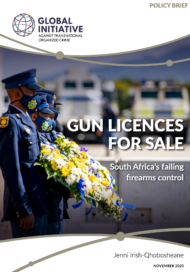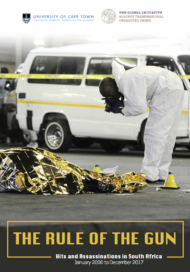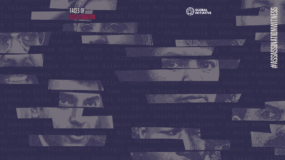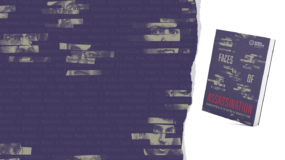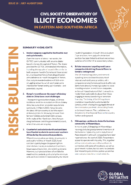Posted on 11 Dec 2020
The assassination of a South African police detective investigating a guns-to-gangs syndicate has brought into sharp focus the links between corrupt elements of the police and the criminal underworld, and the fraudulent channels through which police-issue firearms are sold to criminals.
It has also reinforced how systemic corruption at the firearms registry has been an ongoing problem that has subverted the aims of South Africa’s Firearms Control Act – legislation designed to prevent the dissemination of firearms in the country, and which, ironically, is implemented by the registry.
This paper examines how the entity responsible for controlling civilian access to firearms became so embroiled in corruption that criminal syndicates have been able to infiltrate the registry and acquire firearm licences.
Key Points:
-
If left unchecked, failing control over firearm licensing will continue to undermine government’s ability to fight organized crime.
-
There needs to be an inquiry into the systemic corruption that has taken hold within South Africa’s Central Firearms Registry.
-
The South African Police Service should arrange an independent audit of firearm licences issued.
-
The police service should establish an intervention team tasked with developing and implementing an effective turnaround strategy at the firearms registry.
